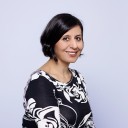Ranke.2 – La plate-forme d’enseignement sur la critique des sources numériques
1 Juin 2016 à 30 Novembre 2019

Ranke.2 est une plate-forme d’enseignement sur la critique des sources numériques développée par le C²DH. L’objectif est de montrer comment la critique des sources peut être appliquée aux sources numériques et d’examiner les bénéfices et les limitations des technologies numériques ainsi que les sources de connaissances fiables et authentiques. L’idée est de créer un environnement visuellement attractif et ludique, qui utilise de courtes animations faisant appel à diverses technologies (p.ex. la reconnaissance optique de caractères, la numérisation et l’impression 3D), à des quiz et à des devoirs pratiques. La plate-forme est accessible à l’adresse ranke2.uni.lu.




